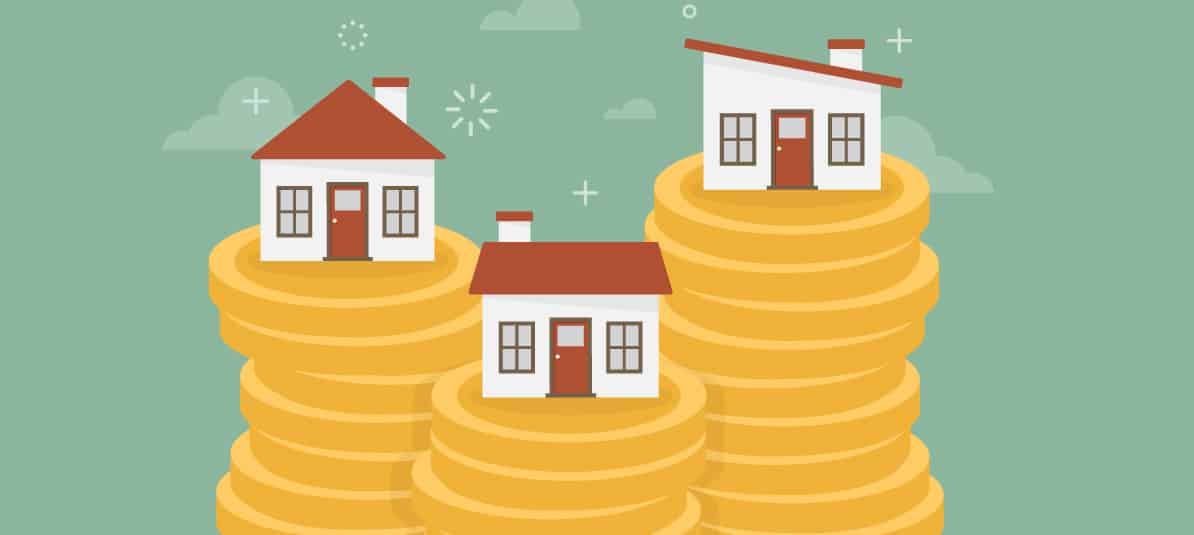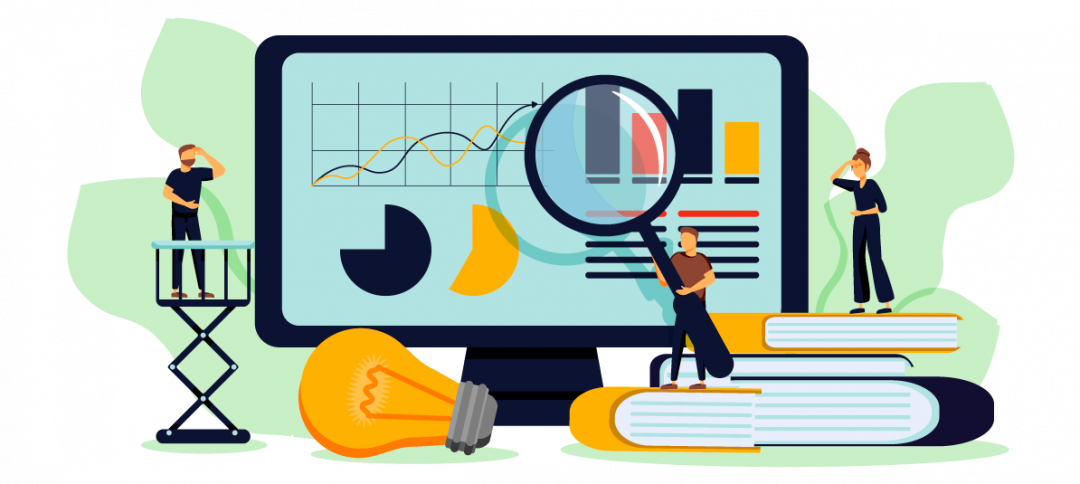In other words, they have lots of assets and little income. This paradox is even greater in retirement, especially for those who have not planned ahead and whose only income is a public pension. One formula for reversing this situation is to treat your home as what it is, an asset, and monetize it.
This way you will be able to get your house to generate some money to increase your income. At this point you are probably thinking about the traditional solution: sell the house. The truth is that this is just one option, and there are other ways of monetizing your home without selling it and even while you are living in it.
These are the 11 ways to monetize your property.
Rent out your house
Let’s start with the most affordable and simple alternatives. Instead of selling the house and paying a lot of taxes, you can rent it out, transforming the house into a monthly income. Simple and easy to put into practice.
What if it’s the house you live in? This formula can be just as useful. Just look for a more affordable rental home or one whose rent is less than the amount you will be charging for yours. This is a way to monetize your home without losing ownership.
The advantage of this formula is that many retired people live in the family home, which is usually larger than they need at that time. These three- and four-bedroom homes are more expensive to maintain financially and also take more work. This is one of the most common mistakes people make with their homes.
This particular characteristic means that you can usually rent your house out for more money it would cost you to lease a property that actually suits your needs. The difference between the two rentals is the income you will receive each month.
Sell to buy
This is the same formula as in the previous case, only adapted to a sale and a purchase. This is what is known as downsizing
As with renting, the key to this way of getting a return on your home is that the house you sell will usually be larger and worth more than the new one you are buying. In addition, if you change your place of residence, you will be exempt from paying taxes on your income tax return.
Rent out rooms in your house
Do you live in a three-bedroom house and only use one? If you have a spare room you can rent it out and get a monthly income for it. This formula is suitable for all ages. In fact, you can use it to pay the mortgage on your house.
Imagine that you live in a rented house with some friends and you want to buy a house, but you want to continue sharing an apartment. You can look for a house, buy it, and rent out the rooms you don’t use to your current roommates.
However, the real potential for renting rooms lies with the elderly. For one thing, their income is lower and they often need to supplement it. On the other hand, they usually have larger houses and rooms at their disposal.
Beyond the financial boost, renting out a room has other emotional and psychological benefits for the elderly and not-so-elderly. It is a way to avoid the much-feared loneliness, to keep an active and open mind and to foster intergenerational bonds. For example, you can learn or practice a new language with a foreign student, become part of a social network, or simply be exposed to ideas and stimuli that would not normally be present in your usual social circle.
In fact, one of the finalists in the fifth edition of the Fundación MAPFRE Social Innovation Awards was Kuvu Homesharing, a project that helps to put people in contact with each other so that they can share their homes and that is in charge of matching the right tenant for each homeowner.
Rent out your home when you are not using it
An alternative that can help you get additional income, although not as regularly, is to rent out your home when you are not using it, either because you are traveling or because you have a second home.
For example, if you have an apartment on the beach where you spend a few months a year, you can rent out your home during the time it is empty and do the same with the beach house. This way you get a return on both properties.
Another alternative with the beach house is to rent it to people that you know will only use it for few months a year, such as teachers, and keep it available for you during the summer months, for example.
Are you going on vacation for all of August? You can rent out your home for those days to pay for your vacation or to generate long-term savings. This is just one example, but there are many possibilities, especially if there are special events in your city, such as Easter in Seville or San Fermin in Pamplona.
Another less seasonal and more sustainable option is to rent out your property at weekends. In fact, some people take advantage of the busiest weekends to rent out their homes while they stay with family or friends.
Platforms like AirBnB, Wimdu or Alterkeys help you to rent your home under these criteria. Another alternative is BeMate, where the hotel chain Room Mate is in charge of managing your apartment on those days.
Rent your house out for events
For filming commercials, movies, series, weddings, birthdays… You can rent out your house for all kinds of events. You just need a home that is appealing for events of that kind.
In this case the inconvenience is significant if we are talking about your usual home, but so is the income, which can amount to more than 1,500 euros per day.
If you are interested, there are specialist agencies that can help you rent out your house for events.
Take out a reverse mortgage
Now let’s look at some less traditional and more creative solutions, but with a financial component that is important to understand.
The first is to take out a reverse mortgage. If the term sounds familiar to you, but you don’t know exactly what it means, you’re not alone. This is very typical.
A reverse mortgage is a formula that allows you to monetize your home and continue living in it for as long as you want, even for the rest of your life.
In essence, a reverse mortgage is a home equity loan where the house acts as collateral. The capital of that loan can be collected all at once or month by month, and the homeowner can continue to use the house freely because the house is still theirs.
In a classic reverse mortgage, when the owner dies, the heirs can either pay off the debt and get the house back or let the real estate collateral be foreclosed, in other words, the bank sells the house to pay off the debt. This way the house can be monetized without affecting the heirs.
The key to this system for the bank and the heirs is that normally the bank will refinance up to 50% of the value of the house, so it is normal that the accumulated debt is not more than the value of the house. And this reverse mortgage will generate interest on the capital that the bank lends you, which you will have to pay back at the end of the loan.
From there, there are different formulas and ways to use a reverse mortgage. For example, it can be used to pay off other debts or to supplement your pension while you are looking for a new home. And there are contracts that allow you to sell your home at any time and then pay off the reverse mortgage debt.
One of the winners of the fourth edition of the Fundación MAPFRE Awards specializes in this area and the following two formulas that you are about to see. This is jubilatucasa.com.
Selling the bare legal title to your house and retaining the usufruct rights
The ownership of your house is divided into two parts. On the one hand there is the bare legal title and on the other are the usufruct rights. Both together constitute the freehold.
Right of usufruct grants the use and enjoyment of the house and is typical in inheritances and wills of married couples with children, where the right of usufruct for life is usually left to the surviving spouse. In other words, the bare legal title to the house belongs to the children, but the father or mother has the right to use the property for life.
The bare legal title indicates that you own the house, but you cannot use it (for the moment). A way to monetize the house without abandoning it is to sell the bare legal title and retain the usufruct rights.
In other words, you sell the ownership of the house to a third party, but you reserve the right to live in it until you die. It is as if the house is yours for all practical purposes, only that the property is owned by someone else. In fact, you can even rent the house out if you want to.
The advantage for the homeowner is clear, but for the buyer? They also benefit, since they will be able to acquire the ownership of the property at a reduced price. There is more than one way of calculating the value of the usufruct right and bare legal title, but normally the discount on the original price ranges between 20% and 60% depending on your age (the older you are, the lower the discount).
Reverse housing
Just as there is a reverse mortgage, there is also a product known as reverse housing. This is an option halfway between the previous two.
With reverse housing you sell the freehold of the house, in other words, you do not retain the right of usufruct. What you do instead is sign a lifetime lease on the house.
There are two ways to formalize this lease. You can agree on a fixed price with a discount on the market price with or without adjustments, or you can apply a discount on the sale price to pay the future rent, which is the most typical strategy.
In the latter case, the option is very similar to the right of usufruct, but with certain limits. The most obvious is that you will not be able to sublet the house unless this is stipulated in the contract. In return, the money you receive for the house will normally be higher than that of a sale with usufruct rights.
Real estate life annuity
This is one of the alternatives mentioned by Juan Ángel Lafuente and Pedro Serrano in their book “How to supplement your pension using your own home. Feasible alternatives for obtaining extra income and continuing to live at home”.
With a real estate life annuity you sell your house in exchange for a life annuity. In a sense it is like renting your home for life while you live in it. The advantage for the buyer is that they do not have to make a large down payment and can pay for the house little by little.
The benefit for the seller is that they will receive money for their house every month. From that point on, you can decide to stay and live in your house with a lower rent or you can leave it and receive a higher amount every month. This last solution is ideal for people who do not want to find themselves with a lot of money in their account for fear of spending it, of outliving that money, or because they know they are not good with their finances.
This model is not very common in Spain, where the figure of life annuities does exist, but they are arranged with financial institutions through an insurance contract.
House swapping
This is a way of exchanging your house for another. By means of a house swap you trade your home for another home of lesser value and pocket the difference. In other words, you get a new house according to your needs and additional money for the difference in value between one and the other.
As you can see, it is a model for monetizing your house that is very similar to selling it, but with certain tax advantages if the one you are selling is not your habitual residence.
Prepaid rent
This last option is actually a way of renting the property with certain nuances. It is a formula that works for people who want to rent out their home for whatever reason (for example, to pay for a nursing home), but who do not want to handle the rental management or assume the risk of non-payment or periods when the home is vacant.
Through a prepaid rent scheme, a financial institution pays you a monthly sum of money or takes care of the nursing home expenses in exchange for collecting the rent from your home.
As you can see, there are many ways to make the most of your home and turn that equity you have in the form of real estate into cash. This way your home will really help you enjoy the retirement you want.









